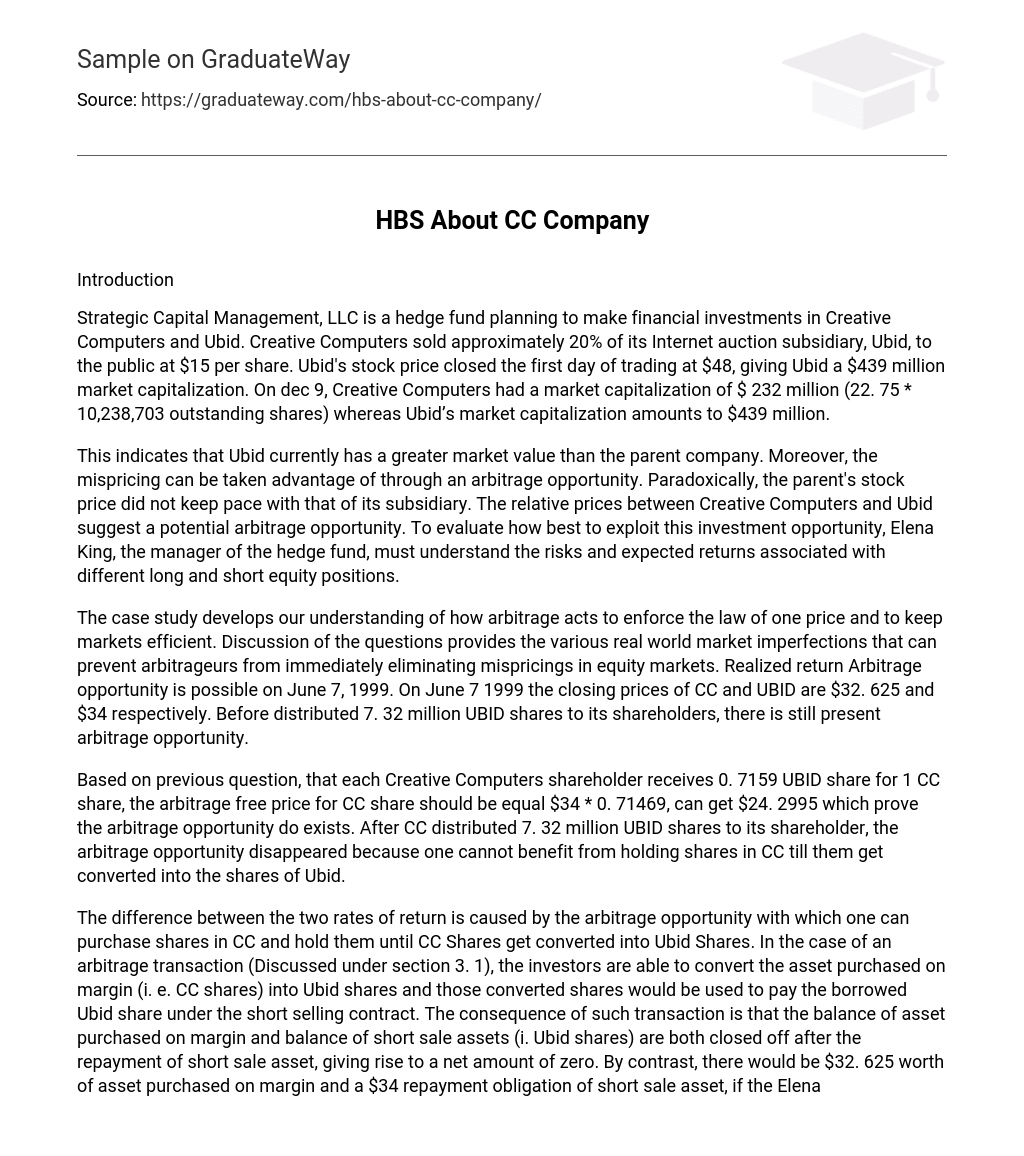Introduction
Strategic Capital Management, LLC is a hedge fund planning to make financial investments in Creative Computers and Ubid. Creative Computers sold approximately 20% of its Internet auction subsidiary, Ubid, to the public at $15 per share. Ubid’s stock price closed the first day of trading at $48, giving Ubid a $439 million market capitalization. On dec 9, Creative Computers had a market capitalization of $ 232 million (22. 75 * 10,238,703 outstanding shares) whereas Ubid’s market capitalization amounts to $439 million.
This indicates that Ubid currently has a greater market value than the parent company. Moreover, the mispricing can be taken advantage of through an arbitrage opportunity. Paradoxically, the parent’s stock price did not keep pace with that of its subsidiary. The relative prices between Creative Computers and Ubid suggest a potential arbitrage opportunity. To evaluate how best to exploit this investment opportunity, Elena King, the manager of the hedge fund, must understand the risks and expected returns associated with different long and short equity positions.
The case study develops our understanding of how arbitrage acts to enforce the law of one price and to keep markets efficient. Discussion of the questions provides the various real world market imperfections that can prevent arbitrageurs from immediately eliminating mispricings in equity markets. Realized return Arbitrage opportunity is possible on June 7, 1999. On June 7 1999 the closing prices of CC and UBID are $32. 625 and $34 respectively. Before distributed 7. 32 million UBID shares to its shareholders, there is still present arbitrage opportunity.
Based on previous question, that each Creative Computers shareholder receives 0. 7159 UBID share for 1 CC share, the arbitrage free price for CC share should be equal $34 * 0. 71469, can get $24. 2995 which prove the arbitrage opportunity do exists. After CC distributed 7. 32 million UBID shares to its shareholder, the arbitrage opportunity disappeared because one cannot benefit from holding shares in CC till them get converted into the shares of Ubid.
The difference between the two rates of return is caused by the arbitrage opportunity with which one can purchase shares in CC and hold them until CC Shares get converted into Ubid Shares. In the case of an arbitrage transaction (Discussed under section 3. 1), the investors are able to convert the asset purchased on margin (i. e. CC shares) into Ubid shares and those converted shares would be used to pay the borrowed Ubid share under the short selling contract. The consequence of such transaction is that the balance of asset purchased on margin and balance of short sale assets (i. Ubid shares) are both closed off after the repayment of short sale asset, giving rise to a net amount of zero. By contrast, there would be $32. 625 worth of asset purchased on margin and a $34 repayment obligation of short sale asset, if the Elena let the share spin-off right lapse. In that case,the net amount of those two assets would be negative. It explains the difference of margin trading and short selling amplify risk, and even if your long term position is sound, you may be adversely affected in the short term, that concluded as always carry cash cushion.





